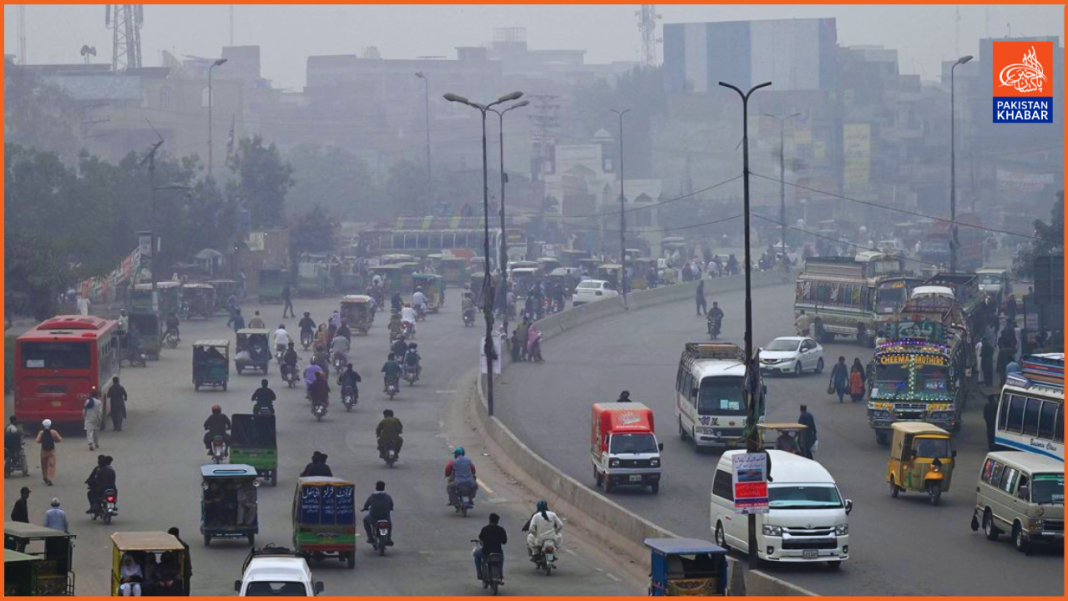LAHORE: In response to the worsening smog situation, the Punjab government has declared a health emergency in Lahore and Multan, where a stringent lockdown will be enforced from Friday to Sunday. The decision comes as the smog, caused by toxic pollutants, has severely affected air quality in these cities. Multan’s air quality index (AQI) has hit record levels, crossing 2,000 on two separate occasions, highlighting the severity of the pollution crisis.
During a press briefing on Friday, provincial minister Marriyum Aurangzeb confirmed that construction activities in both cities would be halted for 10 days. Vehicles carrying construction materials will be blocked at the city entry points, and schools across the province, already closed, will remain shut until November 24. Colleges and universities will switch to online classes, while private and government offices will operate with half of their staff working remotely. Restaurants will be allowed to serve food only until 4 p.m., with takeaway services continuing until 8 p.m.
Heavy transport vehicles, except those carrying essential supplies like fuel, medicines, and food, will be banned from entering the cities. However, pharmacies, medical facilities, and essential services like fire brigades and ambulances will remain operational.
The smog has contributed to a rise in respiratory illnesses, with hospitals extending outpatient department hours and ensuring a steady supply of medicines. The health department is prioritizing calls related to smog-related diseases through Rescue 1122, while special counters will be set up in hospitals to treat affected patients.
Aurangzeb also announced the government’s long-term strategy to combat smog, including a 10-year policy focusing on reducing pollution from transportation, agriculture, and energy sectors. To mitigate the crisis, the government is introducing measures such as installing air quality monitors and promoting green plantation drives to improve Lahore’s minimal green cover.
In a positive development, the government successfully carried out a cloud seeding trial on Friday, resulting in rainfall in Jhelum and Gujar Khan. This experiment, aimed at reducing smog, was a collaboration between the Punjab government, Army Aviation, and the Meteorological Department.
The provincial government remains committed to addressing the environmental challenges posed by smog, emphasizing both short-term and long-term strategies to improve air quality and protect public health.




